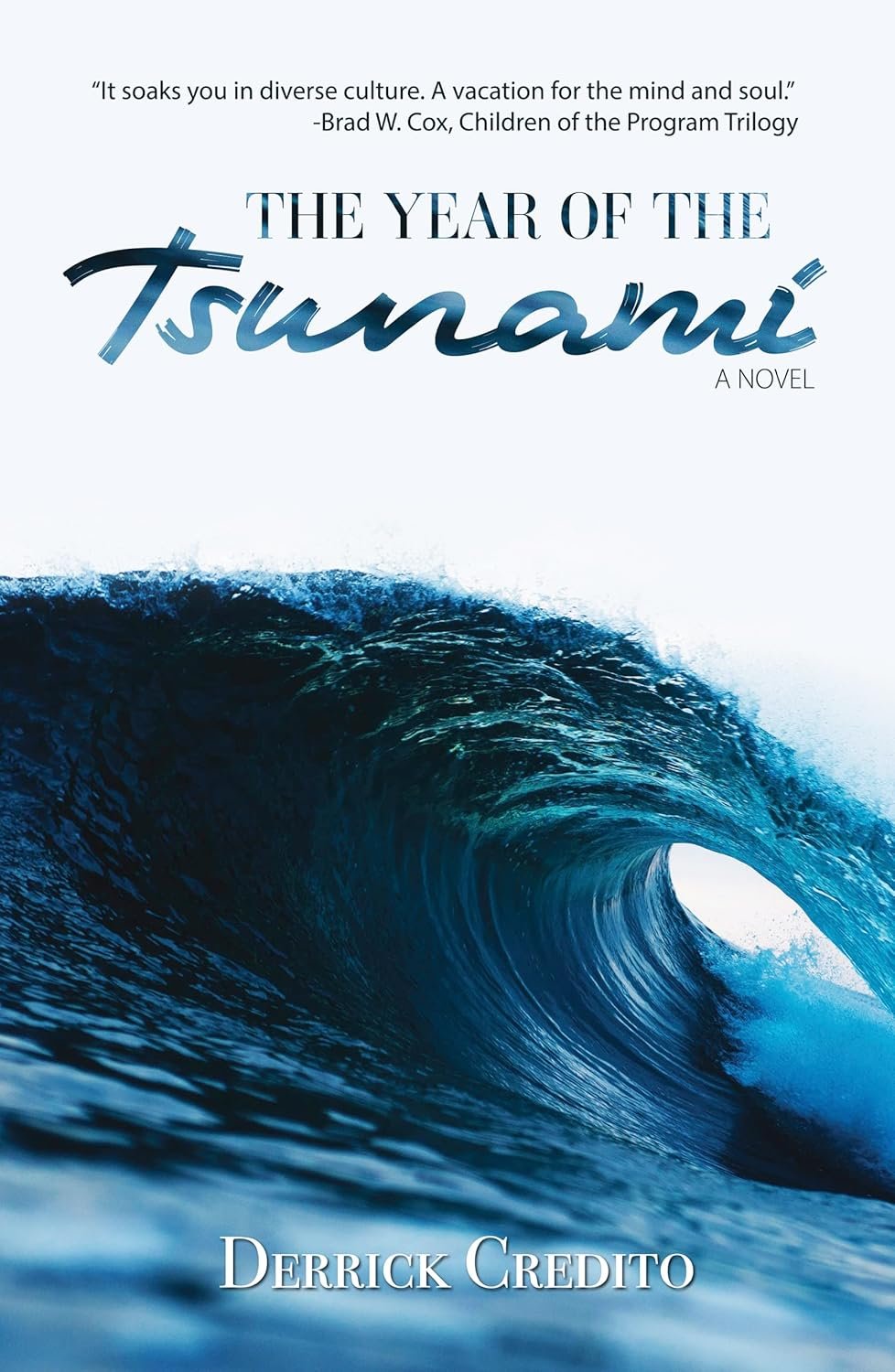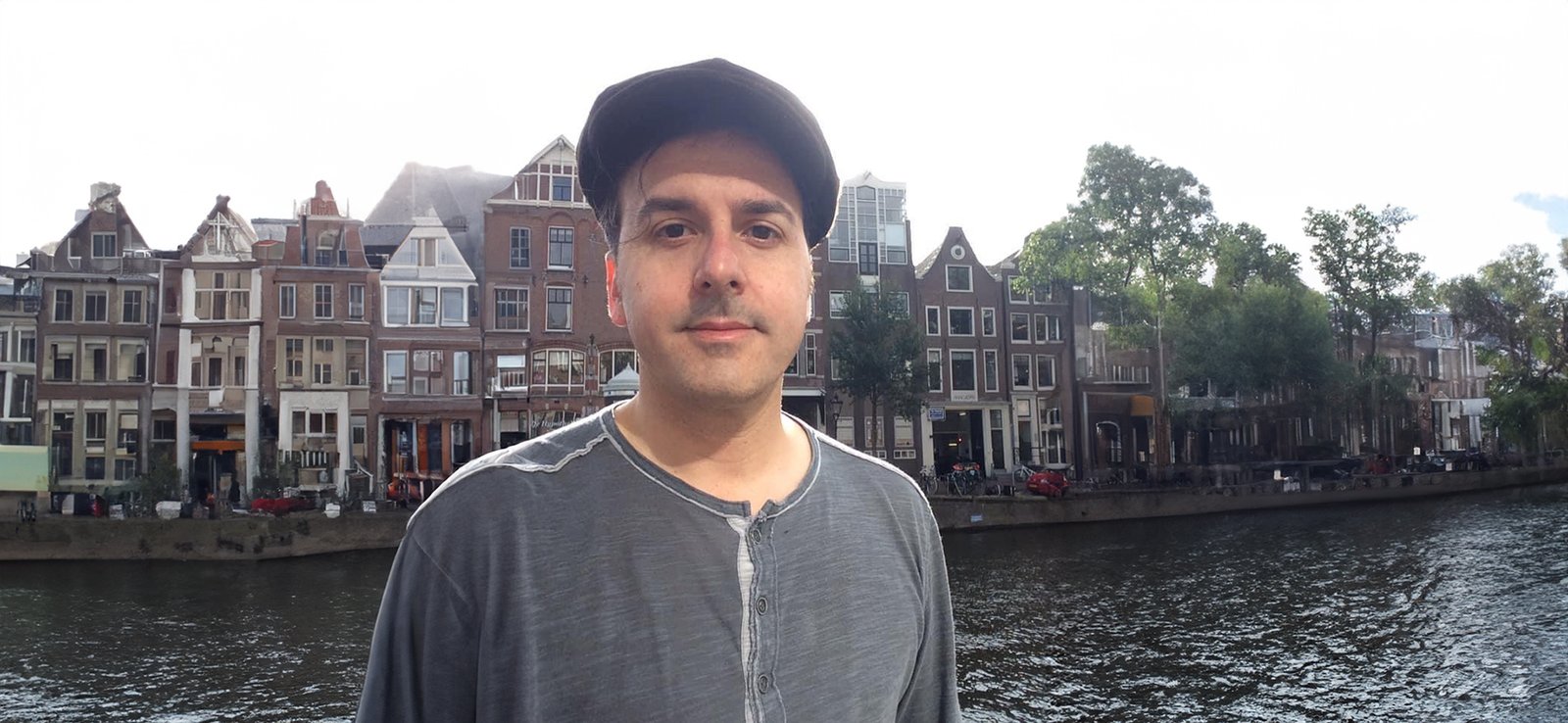Discover how Derrick Credito’s eclectic life experiences shape his storytelling
Derrick Credito discusses his debut novel, The Year of the Tsunami, exploring themes of legacy, survival, and cultural diversity, influenced by his travels, Judaism, and musical career.
Derrick Credito is a multifaceted talent whose work transcends the boundaries of literature, music, and education. Born in Baltimore, Maryland, Credito has carved a unique path that reflects his diverse experiences and interests. His debut novel, The Year of the Tsunami, is a testament to his ability to weave together the sacred and the profane, drawing from his deep connection to traditional Judaism and his extensive travels. Credito’s storytelling is enriched by his roles as a teacher and musician, where he constantly engages with a wide array of cultural perspectives. As a bassist for Baltimore’s modern rock band My Useless Self and a founding member of the award-winning EDM band Let Go Echo, Credito’s musical endeavours further showcase his creative versatility. His upcoming solo project, a Credito album titled Irreverent Soul, promises to be yet another exciting chapter in his artistic journey.
Reader’s House Magazine had the privilege of interviewing Derrick Credito to delve into the inspirations and experiences that shaped The Year of the Tsunami. This novel, which has resonated with readers worldwide, tackles profound themes of promises, legacy, and survival, all while exploring the complexities of human experience. Through this interview, we aim to uncover the personal connections and insights that Credito brings to his work, offering our readers a deeper understanding of the man behind the story.
Derrick Credito masterfully blends diverse cultural experiences and profound themes, creating a compelling narrative that captivates and inspires readers.
In The Year of the Tsunami, you weave a powerful story about promises, legacy, and survival. What inspired you to write this novel, particularly with such a personal connection to the Holocaust?
In the interest of full disclosure, the early manuscript drafts revolved around aimless hedonism in Amsterdam. Then, I converted to Judaism. This would infuse the story with hope, love, wisdom, and compassion. I’ve always been an advocate for Holocaust education. To me, survival is more than just staying alive; it can also mean keeping someone’s name and memory in the world after their lifetime.
As a professor of English and a musician, how have your experiences in both fields influenced your approach to storytelling in this novel?
Since 2011, I’ve been an adjunct professor at three Baltimore-area colleges, where I constantly interact with students from many different walks of life. The cultural diversity of my personal and professional life has always spilled into my writing. A six-year teaching assignment at a Chasidic high school for girls gave me a real window into Orthodox Judaism. This fueled the aspects of the story dealing with prayer and religious devotion.
As a singer-songwriter, I can be blunt and outspoken. After years of performing original songs about heavy topics like prison reform and abortion rights, I felt prepared as an author to address issues like anti-Semitism, homophobia, and sexual politics.
Wes Levine’s journey takes him across the globe, from Bangkok to Amsterdam. How did you choose these particular settings, and what role do they play in shaping the novel’s themes?
I’d only ever want to write about settings I’ve personally experienced myself. Having traveled widely in my young adult years, I ended up with a lot of material to draw upon. In the 2000s, I spent six years in the Asia-Pacific. But since Wes Levine’s journey from Bangkok to New Zealand is fictional, he experiences different dangers and pleasures — a different journey — than I did. Since 2010, I’ve taken trips to Amsterdam almost annually. But it wasn’t until I received a travel grant in 2019 that I went back to Amsterdam to research Jewish history. While there, I visited a progressive synagogue that would inspire the fictional one in my novel.
Scribing a Torah becomes a significant act of remembrance for Wes. Can you share more about how this sacred act drives the emotional core of the story?
In “Tsunami,” Wes Levine’s paternal grandparents pass away after a long life in the U.S. While traveling to Thailand as an English teacher, the loss is still fresh for Wes. Also searching for his absent father, Wes is determined to harness his basic scribal training to honor his grandparents’ memory. Ultimately, Wes scribes a Torah for his grandparents in Amsterdam, the same city they narrowly had escaped during the Holocaust.
The novel explores some darker aspects of life in Amsterdam’s Red Light District. How did you balance this with the themes of love, faith, and legacy in Wes’s story?
Amsterdam’s Red Light District is located right next to the city’s Jewish Quarter. That proximity isn’t an issue in this culturally diverse city, where quite literally anything goes. Wes is a compassionate character who brings his heart and his values into seedy and sacred environments alike. While fulfilling a spiritually meaningful legacy for his grandparents, Wes also wants to correct various injustices outside of Judaism. Cobbling together all those different elements into a cohesive storyline felt surprisingly natural to me.
Your debut novel takes on ambitious topics, from religious devotion to human trafficking. What were some of the challenges you faced in writing such a complex narrative, and how did you overcome them?
Amsterdam has long been my True North. I figured, if two seemingly incompatible worlds — namely, the Jewish Quarter and the Red Light District — can coexist in the center of a liberal European city, then that deserves representation in literature.
While writing “Tsunami,” I read many books on everything from Jewish traditions to sex work. I interviewed rabbis, former Amsterdam street musicians, doctors, and lawyers. Some readers might be turned off by a religious-themed book, while others may balk at the risqué Red Light District setting. But I put it all on the table, and the result is a novel I’m proud of. I wouldn’t change a thing.
EDITOR’S CHOICE
A beautifully written, deeply immersive novel that masterfully blends history, faith, and suspense. Credito’s storytelling is both poignant and unforgettable.



